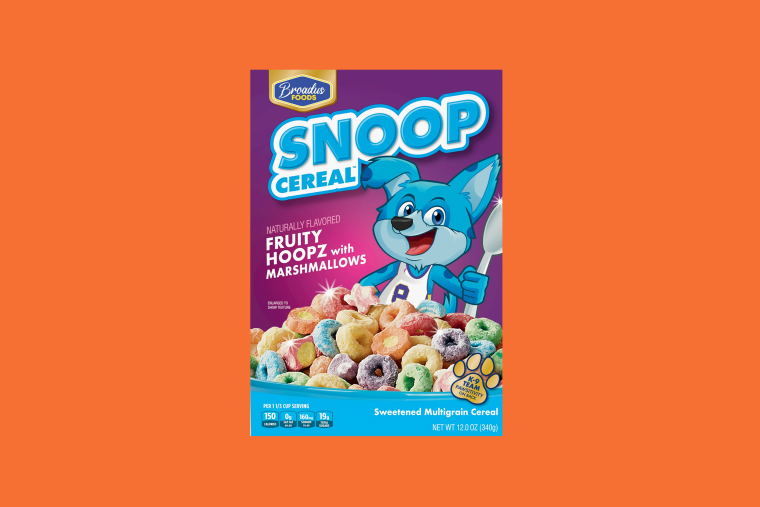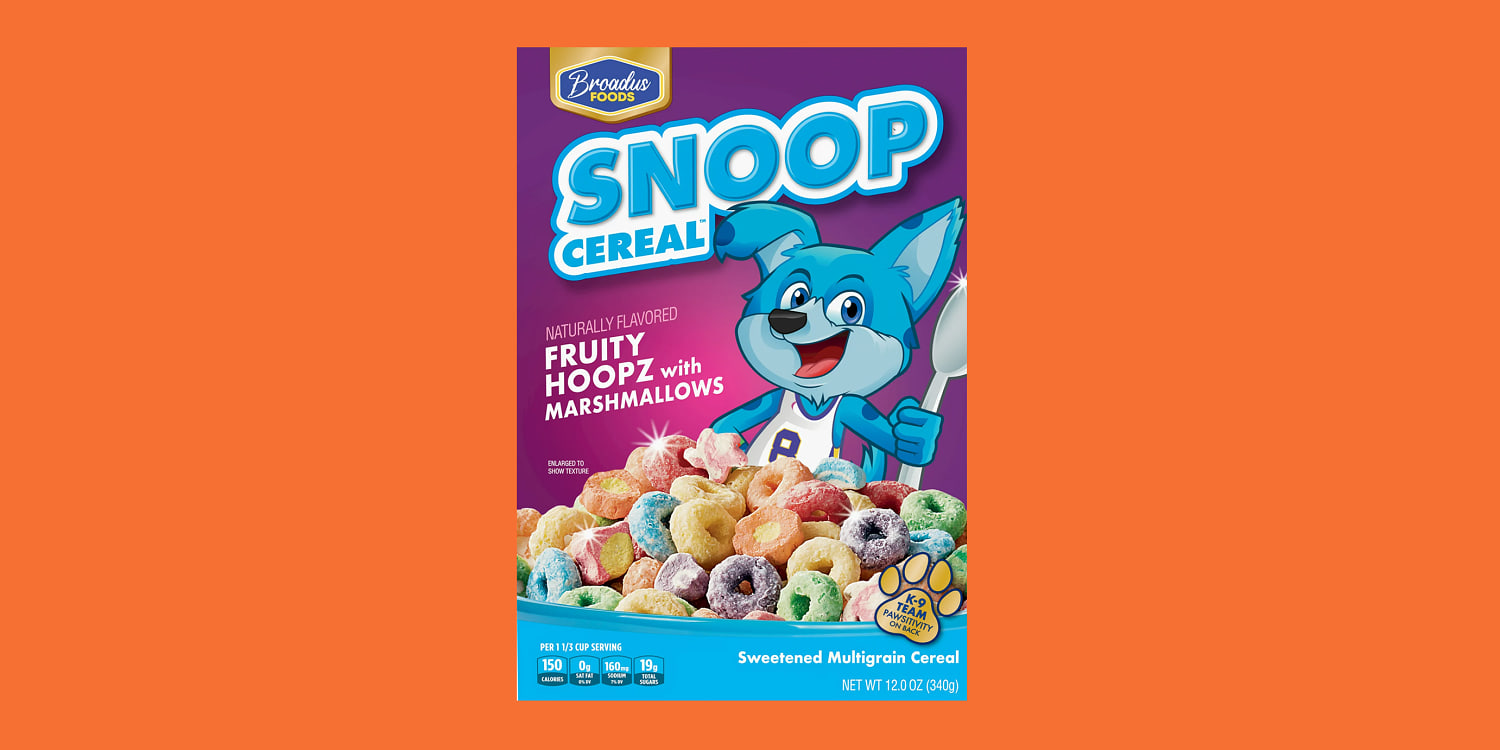Rappers Snoop Dogg and Master P are suing Post Foods and Walmart, accusing them of intentionally leaving the musicians’ cereal off store shelves and hiding it in stockrooms to sabotage it.
Calvin Broadus, better known as Snoop Dogg, and Percy Miller, commonly known as Master P, rejected a proposal by Post Foods to buy the cereal outright, according to the lawsuit filed Tuesday in Dakota County, Minnesota. After they eventually entered into an agreement in 2022, Post did not treat Snoop Cereal “equally as its own brand,” even though it sold well when it was placed on store shelves, the suit says.
The rappers began Broadus Foods in 2022 in hope of “inspiring and creating opportunities” for minority-owned food products, according to the suit. A big product under Broadus Foods is Snoop Cereal, sold in flavors that include “Fruity Hoops with Marshmallows” “Frosted Drizzlers” and “Cinnamon Toasteez.”
Snoop Dogg and Master P approached Post Consumer Brands, which the lawsuit calls a “breakfast juggernaut,” seeking a partnership. They strived to get Snoop Cereal in stores where Post cereals were sold, the suit says.
After talks with Post began, the company initially offered to buy Snoop Cereal outright, Snoop Dogg and Master P rejected because it would go against their company’s goal to promote minority-owned businesses, according to the suit. Agreeing to sell the brand would also stop the artists from leaving the company to their families as a legacy business, the suit says.
On Dec. 13, 2022, Broadus Foods did sign a contract with Post to take over all aspects of production of Snoop Cereal, including manufacturing, packaging, retail, sales, distribution and transportation, the suit says.
As part of the agreement, it says, Broadus Foods and Post would split profits, and Post agreed to “treat Snoop Cereal as one of its own brands” and distribute it to “the major retailers including Walmart, Target, Kroger, and Amazon.”
“Because the largest seller of Post’s products is Walmart, Snoop Cereal should have been placed on Walmart’s shelves right next to the dozens of other Post branded” cereals, the suit continues. “Unbeknownst to Broadus Foods, Post was not on board with their goals and dreams and had no intention of treating Snoop Cereal equally as its own brand.”
“Essentially, because Snoop Dogg and Master P refused to sell Snoop Cereal in totality, Post entered a false arrangement where they could choke Broadus Foods out of the market, thereby preventing Snoop Cereal from being sold or produced by any competitor,” the suit says.

According to the lawsuit, when it was placed on shelves, Snoop Cereal was popular and sold well. However, the products were quickly taken off the shelves, leaving shoppers wondering where to find them, the suit says.
According to the lawsuit, shelf placement is key to selling cereals, and Post and Walmart knew that.
“Walmart and Post agree on the exact aisle, shelf, and position each box will reside on that store floor,” according to the suit. “This joint venture results in each store being told exactly where they are to put each cereal brand down to the nearest millimeter.”
The suit gives several examples of frustrated consumers showing up at stores for Snoop Cereal, asking how to find it and being told there was none, only for boxes of it to turn up in stockrooms.
In an example cited in the lawsuit, 200 boxes of Snoop Cereal that had been at a Walmart in New Berlin, Wisconsin, for months were never placed in the cereal aisle.
“In November and December 2023, Walmart stores consistently showed that they did not have Snoop Cereal in stock and online showed that it could not be purchased,” according to the suit. “The Walmart store managers told customers that they did not have any Snoop Cereal in their store.”
Walmart is responsible for coding each box to where it will be placed on shelves, the lawsuit says. Walmart can also code cereal by marking boxes “no location,” which means it will remain in the stockroom. After they sit in the stockroom for months, boxes are thrown out or sold at significant discounts, the suit alleges.
Some of the claims in the lawsuit include breach of contract, breach of fiduciary duty, negligent misrepresentation, fraud and collusion and conspiracy.
Post Consumer Brands did not immediately respond to a request for comment Wednesday afternoon.
However, in a statement to NBC Los Angeles, it said it “was excited to partner with Broadus Foods and we made substantial investments in the business. We were equally disappointed that consumer demand did not meet expectations.”
In its own statement, Walmart said that it values its relationships with suppliers and that “many factors,” including consumer demand and seasonality, affect the sales of any given product. “We will respond as appropriate with the Court once we are served with the complaint,” the company said.
At a media briefing Tuesday announcing the lawsuit, Master P said the suit “is about minority-owned companies getting a fair share.”
Snoop Dogg said, “We ain’t build this brand to sell it.”
The rappers are being represented by high-profile civil rights attorney Ben Crump. They are seeking a jury trial, damages exceeding $50,000, covering the cost of the lawsuit, attorneys’ fees and “further relief determined by the Court.”
Source: | This article originally belongs to Nbcnews.com










